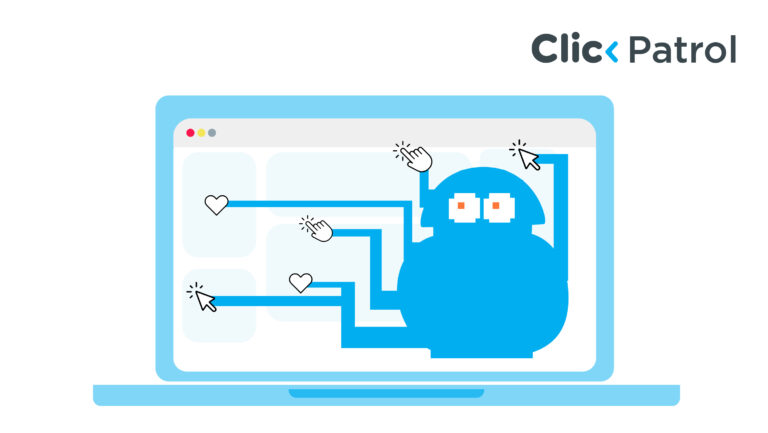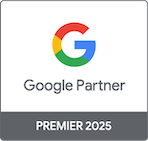
Google Auction intelligence: How to win more Ad bids and lower CPCs
Abisola Tanzako | Mar 18, 2025

Table of Contents
- What is Google Auction intelligence?
- Google Ads Auction process: How bids and quality score affect rankings
- The key elements of Google Auction intelligence
- 1. Optimizing quality score
- 2. Analyzing competitor auctions
- 3. Optimizing bid strategies
- 4. Device and audience targeting
- 5. Understanding trends and seasonality
- Google Auction intelligence vs. traditional bid management
- Advantages of Google Auction intelligence
- How to use intelligence to win Google Ads Auctions
- 1. Use automated bidding wisely
- 2. Leverage competitor Auction Insights
- 3. Optimize landing pages and ad copy
- 4. Adjust bids by device and location
- 5. Use first-party data for retargeting
- Common mistakes advertisers make in Google Ads Auctions (and how to fix them)
- 1. Bidding too high or too low:
- 2. Ignoring quality score:
- 3. Poor keyword targeting:
- 4. Neglecting ad extensions:
- 5. Weak ad copy and call-to-action (CTA):
- The importance of Google Auction Intelligence for advertisers
- FAQs
Google Ads processes over 8.5 billion searches daily, making auction intelligence critical for advertisers (Google, 2023). With billions of searches per day, Google Ads is the biggest digital advertising network in the world. Understanding auction intelligence is more crucial than ever since, according to Statista, marketers will spend more than $224 billion on Google Ads in 2023.
This guide explains how Google’s auction system works, key bidding factors, and advanced strategies to improve ad rank and reduce costs.
What is Google Auction intelligence?
Google Auction Intelligence helps advertisers optimize their Google Ads strategy by analyzing competitor performance, market trends, and real-time bidding data. It leverages machine learning, bid analysis, and audience insights to maximize ad visibility and minimize expenses.
Google Ads Auction process: How bids and quality score affect rankings
Whenever a user searches for something relevant, Google Ads runs a real-time auction. The steps include:
- User search query: A user enters a term in the search bar.
- Eligible Ads selection: Google scans all relevant ads for the query.
- Ad rank calculation: Google ranks ads based on quality score, bid amount, and expected impact of ad extensions.
- Ad placement: Top-ranked ads appear on Google Search, YouTube, or the Display Network.
- Cost per Click (CPC) calculation: Advertisers pay a CPC based on the next-highest competitor’s bid.
Ad rank formula:
Ad Rank = Max Bid × Quality Score × Expected Impact of Ad Extensions
The key elements of Google Auction intelligence
Key elements of Google Auction intelligence include:
1. Optimizing quality score
- Google assigns a Quality Score (1-10) based on:
- Ad relevance: How well your ad matches the search query.
- Landing page experience: The relevance and usability of your landing page.
- Expected click-through rate (CTR): The likelihood that someone clicks your ad. A higher quality score leads to better ad positions, lower CPCs, and higher conversion rates.
2. Analyzing competitor auctions
Google Ads provides Auction Insights Reports, helping advertisers analyze:
- Impression share: How often your ad appears vs. competitors.
- Overlap rate: How frequently your ads run alongside competitors’.
- Outranking share: How often does your ad rank higher than a competitor’s?
3. Optimizing bid strategies
Google Ads offers various bidding strategies:
- Manual CPC: Set the maximum CPC manually.
- Enhanced CPC (ECPC): Google adjusts bids for conversions.
- Target CPA: Optimizes bidding for a specific cost per acquisition.
- Target ROAS: Adjusts bids to maximize revenue.
Advertisers can use auction intelligence to identify which bidding strategies yield the highest ROI.
4. Device and audience targeting
Google Auction Intelligence helps analyze:
- Which devices (desktop, mobile, tablet) drive the highest conversions?
- Which demographics (age, gender, income levels) respond best?
- Which locations generate the highest CTR and lowest CPC?
5. Understanding trends and seasonality
Several factors influence Google Ads costs:
- Peak seasons and holidays: (e.g., Black Friday, Christmas)
- Industry trends (e.g., increased e-learning demand during back-to-school season)
- Economic factors (e.g., CPC decreases during a recession)
Google Auction intelligence vs. traditional bid management
Campaign success is greatly influenced by how advertisers handle their bids as digital advertising becomes increasingly competitive. While traditional bid management depends on manual changes, Google Auction Intelligence optimizes bidding using AI and real-time data. As digital advertising grows more competitive, bid management methods evolve. Here is a comparison:
1. Uses AI & machine learning
- Google Auction Intelligence: Yes
- Traditional Bid Management: No
2. Competitor insights
- Google Auction Intelligence: Yes
- Traditional Bid Management: No
3. Automated bid adjustments
- Google Auction Intelligence: Yes
- Traditional Bid Management: No
4. Audience behavior analysis
- Google Auction Intelligence: Advanced
- Traditional Bid Management: Basic
5. Real-time adaptation
- Google Auction Intelligence: Yes
- Traditional Bid Management: No
Advantages of Google Auction intelligence
By implementing Google Auction intelligence, advertisers may improve bidding tactics, improve keyword targeting, and increase return on investment. Here is how:
- Enhanced bidding approach: Advertisers can stay competitive without exceeding the budget by using auction intelligence to modify bids in real-time.
- Comparative evaluation: Businesses can find strategy gaps and evaluate their performance against competitors by examining Auction Insights reports.
- A higher return on investment: Optimizing bids and ad placements based on auction intelligence ensures better ad performance and cost control.
- Smart keyword research: Advertisers can determine which keywords their rivals use most frequently and modify their approach to concentrate on high-converting prospects.
How to use intelligence to win Google Ads Auctions
Winning Google Ads auctions requires more than raising bids; you need automation, intelligence, and strategy. Follow these proven methods:
1. Use automated bidding wisely
Google’s AI-powered strategies (Target CPA, ROAS, Maximize Conversions) increase efficiency but need historical data.
- Tip: Start with manual CPC, then scale with enhanced CPC, then move to Target CPA/ROAS.
2. Leverage competitor Auction Insights
Analyze Auction Insights reports to answer the following:
- Who is increasing bids?
- What keywords are competitors targeting?
- How often do their ads overlap with yours?
Tip: Shift budgets to less competitive but high-converting keywords.
3. Optimize landing pages and ad copy
Since Ad Rank = Bid × Quality Score, refining landing pages and ad copy helps lower CPCs.
- Tip: Use compelling ad headlines, structured snippets, and responsive landing pages.
4. Adjust bids by device and location
- Raise bids in high-performing regions.
- Reduce bids where conversion rates are low.
- Modify device-based bidding for better ROI.
- Example: Increase mobile bids if mobile CPC is 30% lower than desktop.
5. Use first-party data for retargeting
- Tip: Leverage Google Analytics, customer lists, and website traffic for better targeting.
Common mistakes advertisers make in Google Ads Auctions (and how to fix them)
Google Ads auctions can be highly competitive, and even experienced advertisers often make costly mistakes that reduce their return on investment (ROI). Here are some of the most common errors and how to fix them:
1. Bidding too high or too low:
- Mistake: Some advertisers set excessively high bids, quickly draining their budgets, while others bid too low, limiting ad visibility.
- Fix: Optimize bids based on performance data using automated bidding strategies, such as Maximize Conversions or Target ROAS (Return on Ad Spend). Also, regularly analyze Auction Insights to adjust bids strategically.
2. Ignoring quality score:
- Mistake: Many advertisers focus only on bids without considering their Quality Score (a combination of ad relevance, landing page experience, and expected CTR). A low Quality Score increases costs and reduces ad rank.
- Fix: Improve ad relevance by ensuring your keywords match your ad copy and landing page content. Optimize speed, clarity, and mobile friendliness to enhance the landing page experience.
3. Poor keyword targeting:
- Mistake: Using broad-match keywords without proper filtering can lead to irrelevant traffic, while using only exact matches can limit reach.
- Fix: Use a combination of phrase match and broad match modifiers, and regularly update your negative keywords list to exclude irrelevant searches.
4. Neglecting ad extensions:
- Mistake: Not using ad extensions (such as sitelinks, callouts, structured snippets, and call extensions) reduces visibility and engagement.
- Fix: Add relevant ad extensions to provide more information and increase click-through rates (CTR). Google favors ads with extensions, improving Ad Rank.
5. Weak ad copy and call-to-action (CTA):
- Mistake: Generic ad copy with unclear messaging fails to attract attention and conversions.
- Fix: Write compelling headlines and descriptions that highlight unique value propositions (UVP) and include strong CTAs like “Get a Free Quote” or “Shop Now”.
The importance of Google Auction Intelligence for advertisers
Regarding advertisers looking to improve their ad strategy and optimize performance, Google Auction Intelligence is revolutionary. Businesses can obtain a competitive edge by utilizing Auction Insights Reports to evaluate rival strategies, maximize bidding, and enhance ad quality.
As Google Ads auctions evolve with search optimization, first-party data strategies, and AI-driven bidding, staying ahead of these trends and improving ad efficiency, visibility, and return on investment will be crucial. Optimize your Google Ads bidding strategy today; schedule a free campaign audit!
FAQs
Q. 1 Can small businesses compete in Google Ads auctions?
Yes! Small businesses can compete effectively by using smart bidding, improving quality scores, and focusing on niche keywords.
Q. 2 Does a higher bid guarantee a top ad position?
No. Google also considers ad relevance, Quality Score, and expected CTR. A well-optimized ad can outrank a higher-bid competitor.
Q. 3 What is the ideal Quality Score for competitive bids?
A score of 7+ is good, while 8-10 is excellent for lower CPCs and better rankings.
Q. 4 How does Ad Rank differ from Ad Placement?
Ad Rank determines auction position, while Ad Placement dictates where the ad appears on the page.





